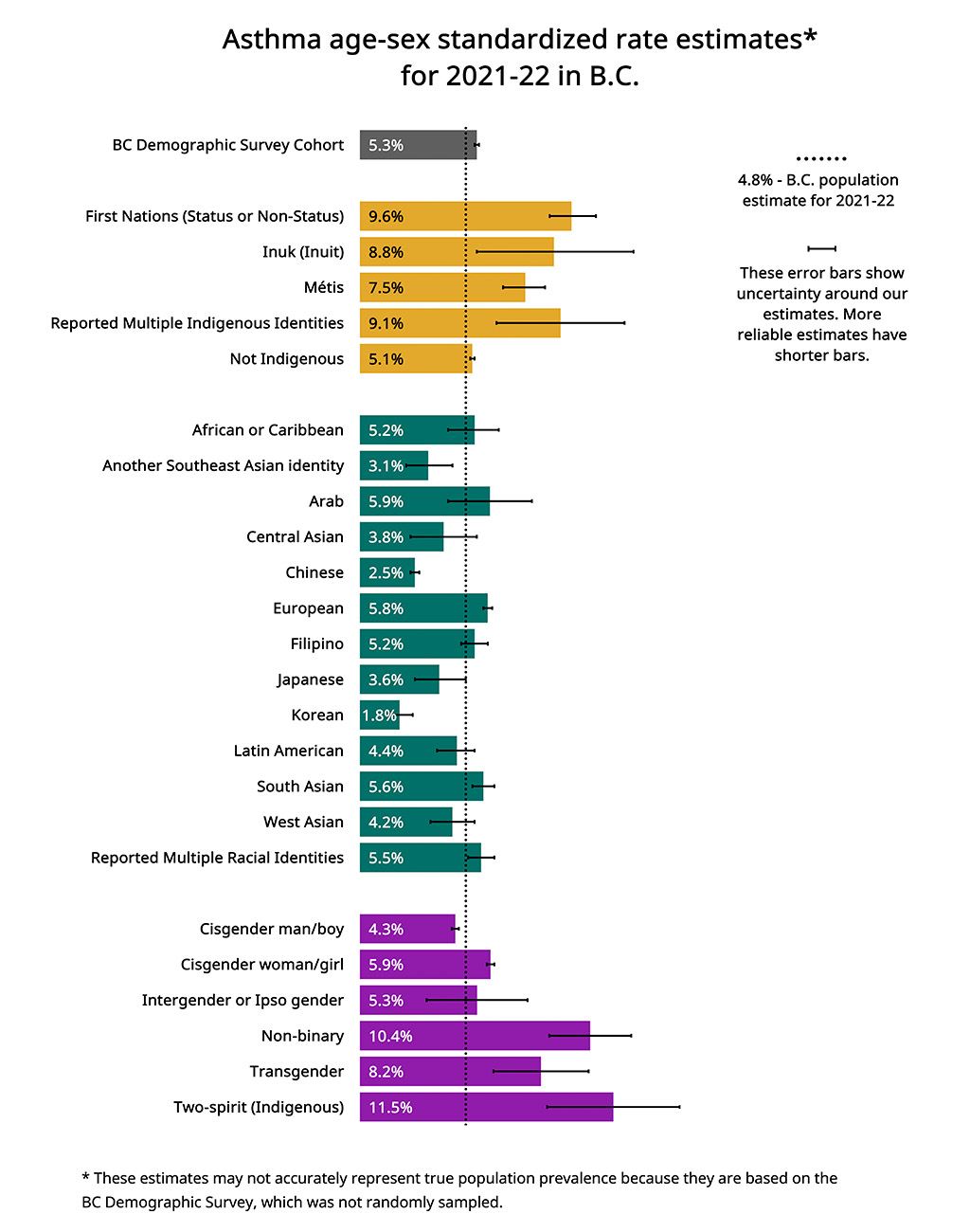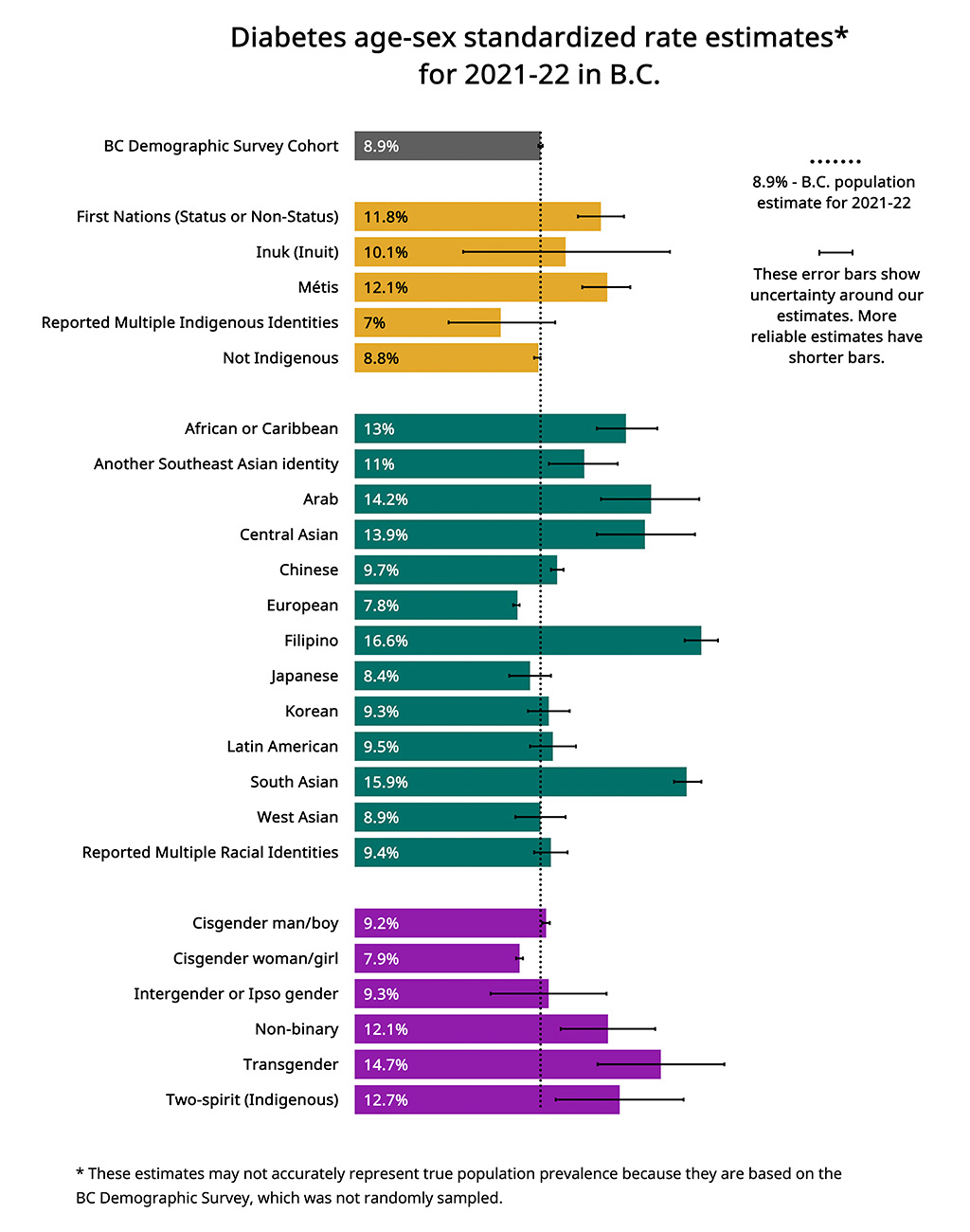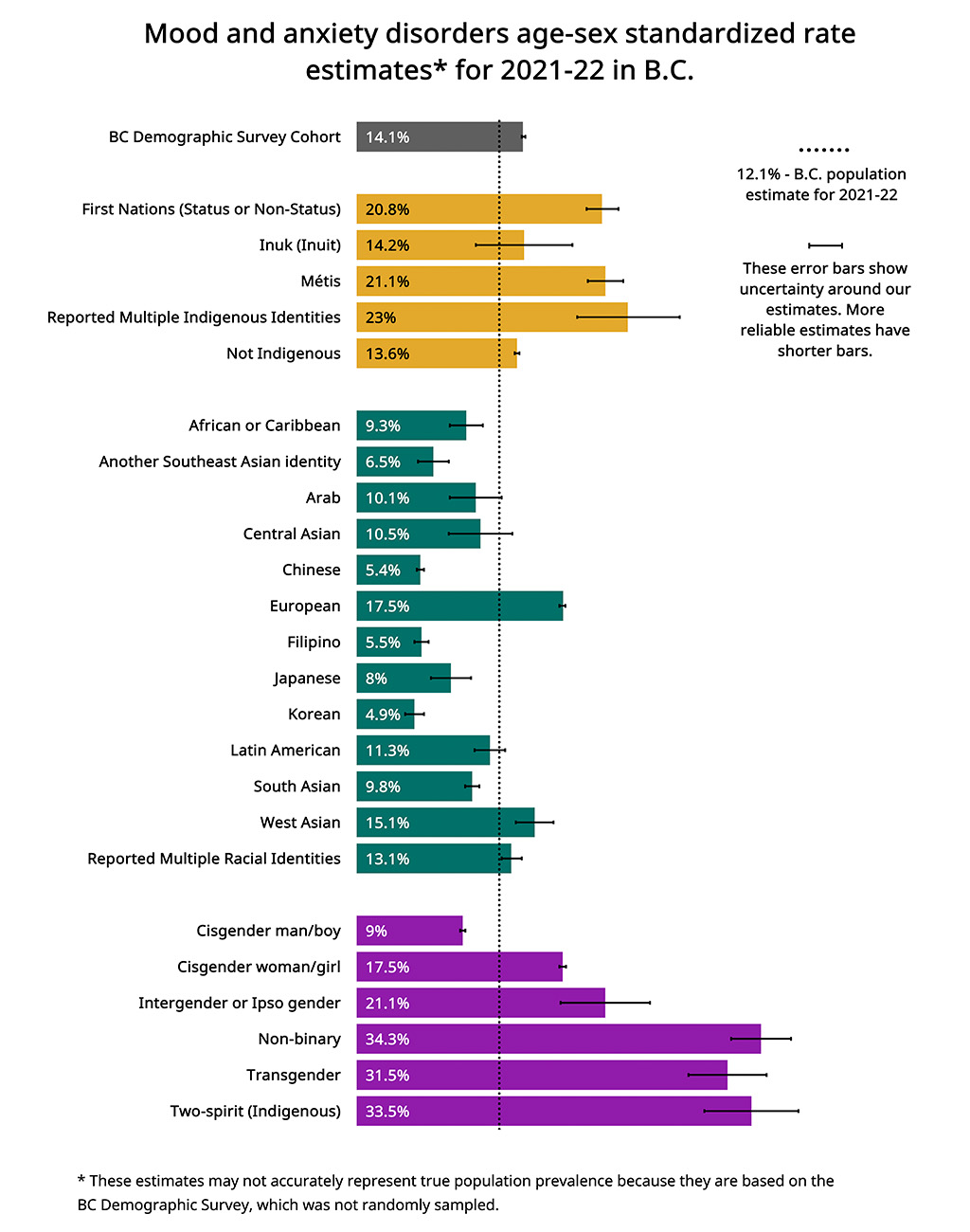Health outcomes
Population Differences in Three Chronic Diseases in BC: a study of common chronic conditions to start a larger discussion about unequal opportunities for prevention and management of chronic disease.
May 30, 2024

Indigenous and gender-diverse communities are disproportionately impacted by chronic conditions.
Chronic health conditions like asthma, diabetes, and mood and anxiety disorders, are impacting many people and their families’ quality of life here in B.C
Our identities are sources of strength and resilience, not risk factors for chronic diseases. Demographic information like race, ethnicity, gender can help us better understand the gaps within our health care system and meet the health needs of B.C.’s diverse population.
As a first step, we’re researching people’s use of health care services for chronic diseases to identify the gaps and who are most impacted by it.
What did we learn and what are the next steps?
We’re doing this research in phases to make sure we are focusing on areas that matter most to Indigenous and racialized people.

In this first phase, we explored how often common chronic conditions occur across these populations and gender identities in B.C. The chronic conditions we looked at were diabetes, asthma, and mood and anxiety disorders.
For this research, we used responses from the BC Demographic Survey (weighted to the total BC population to support representativeness) and combined them with health records for the period between April 2021 and March 2022.
Our results show that these conditions may occur at different rates across populations. For example, Indigenous people are disproportionately impacted by these three chronic conditions. However, it’s important to note that the vast majority of the B.C. population, including Indigenous people, do not have any of these three chronic diseases.
There are many factors that may impact health and well-being and increase the risk of developing chronic diseases.
For future research, we will expand the analysis to explore how other factors are contributing to the differences in chronic-disease rates across populations.
In future research phases, we’ll look at:
We want to better understand population needs so that everyone managing a chronic disease has access to the care they need, when and where they need it.
For subsequent analysis, other research topics are being considered, for example exploring how income, rurality and other factors can impact chronic condition prevalence and care for diverse population groups.

What is this research about?
This research is about better understanding who are most impacted by chronic health conditions. The first phase focused on how often asthma, diabetes, and mood and anxiety disorders are affecting people in different population groups in B.C.
This report is a part of the 2024 release of statistics as outlined in Section 19 of the Anti-Racism Data Act, and in consultation and cooperation with Indigenous Peoples (Section 20 of the Act).

Why is this important?
Differences in chronic-condition rates across population groups exist in the province. We need to identify and understand the reasons for these differences.
With this information, we can talk about ways to deliver culturally safe support for disease prevention and management. This will support our goal of improving health outcomes for people in B.C.

What data did we use?
The Ministry of Health did analysis using the following data:
- BC Demographic Survey
- Demographic information and chronic disease registry collected by the Ministry of Health
- Census data from Statistics Canada
This research is done through B.C.’s Data Innovation Program.
Explore the results
These findings are based on information on 196,800 respondents of the BC Demographic Survey. The survey sample is weighted to better represent the B.C. population. These findings differ from other publicly released statistics that are based on administrative datasets that represent all people living in B.C.
For diabetes, we looked at whether a person had ever been diagnosed with the condition. For asthma, and mood and anxiety disorders we calculated rates based on whether a person sought care for the condition between April 2021 and March 2022.
Higher chronic-disease rates for a population group generally reflect a greater burden of the disease and related health-care needs. However, it can also reflect that some population groups are more likely to seek care and have a diagnosed condition. Conversely, lower chronic-disease rates can be due to lower burden of disease in a population group but may also reflect barriers in access to health care.
In this phase one analysis, differences in chronic-disease rates between population groups are described but the contributors to the differences are not discussed.




What data did we use?
We used information from:
- BC Demographic Survey
- Demographic information and chronic disease registry collected by the Ministry of Health
- Census data from Statistics Canada
This research is done through B.C.’s Data Innovation Program. This program allows researchers to safely work with sensitive data.
Who’s working on this project?
Phase one of this research was done by the Ministry of Health. In the next phases, we’ll collaborate with others including but not limited to:
- First Nations Health Authority
- Métis Nation British Columbia
- Provincial Health Services Authority
- Regional health authorities
BC Stats supported this project via B.C.’s Data Innovation Program, by hosting consultations with the Anti-Racism Data Committee and Indigenous Governing Entities, and by facilitating publications.

Looking to learn more?
On May 30, 2024, we released a technical report about this research project. Explore this report to learn more about our approach and processes for this project.
The technical report also provides information on services available in B.C. to support health and wellness in culturally specific and gender sensitive ways, and guidelines to support education, diagnosis, and management of these conditions.
